Michael Kelly, a Ph.D. student at the University of California, Berkeley, will assess how flexible-inflatable wave energy converters perform relative to their rigid counterparts when coupled with traditional, high-efficiency power take-off systems.
Water Power Technologies Office
June 30, 2021For the 2021 cohort of Oak Ridge Institute for Science and Education (ORISE) Marine and Hydrokinetic (MHK) Graduate Student Research Program Fellows, every day is an opportunity to seek scientific solutions among the waves. Michael Kelly, a Ph.D. student at the University of California, Berkeley, will assess how flexible-inflatable wave energy converters perform relative to their rigid counterparts when coupled with traditional, high-efficiency power take-off systems. Learn more about Michael's research topic and vision for a clean energy future in the interview summary below.
How did you hear about the ORISE fellowship program?
I saw it featured in the DOE Water Power Technologies Office newsletter, but I also heard about the opportunity from other people in the industry. I think CalWave and the National Renewable Energy Laboratory promoted the program, so I heard about it in a couple of ways.
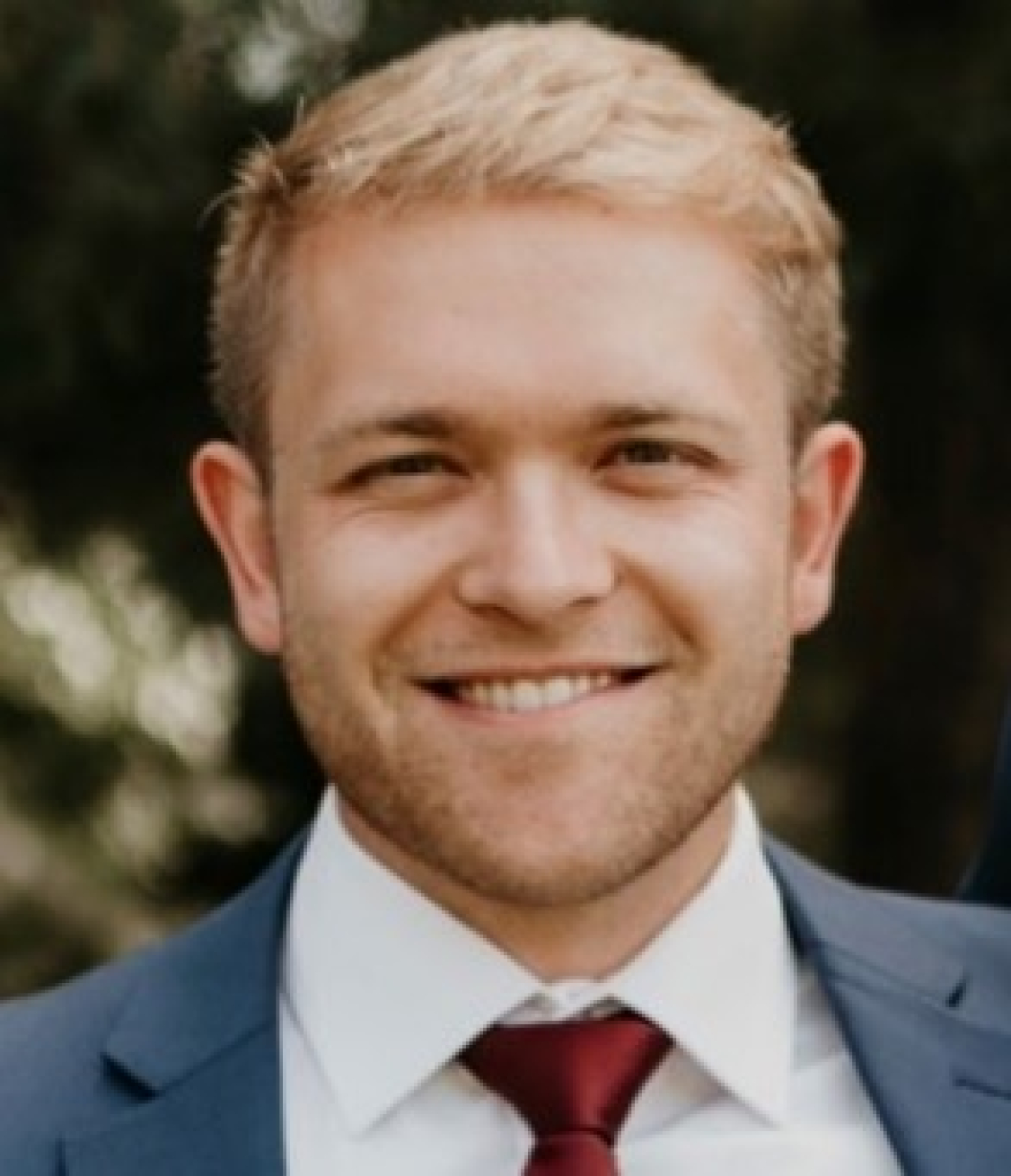
After earning his BS in Mechanical Engineering at South Dakota School of Mines and Technology, Michael has been pursuing advanced graduate degrees focused on wave energy at the University of California, Berkeley. Photo courtesy of Michael Kelly.
It sounds like you're well connected already. What led you to this point in your career path?
I guess it all started when I was on a tour at South Dakota School of Mines during undergrad when we went past a giant steel structure. I had no idea what it was. When I heard that it was a wave tank used for researching wave energy, I immediately got excited about helping solve problems with a technology not many people were working on. Since then, I've done two internships at the National Renewable Energy Laboratory's Flatiron Campus in Boulder, Colorado, and also one with CalWave when I was in Berkeley for a summer. These opportunities can be a great way to travel and get experience!
What is your proposed research topic for this fellowship?
I'm looking at the feasibility of replacing rigid structures with flexible or inflatable structures in small and mid-scale wave energy converters. Inflatable structures could potentially decrease the technology's structural costs and lower transportation and installation costs, but it's unknown how well they perform compared to rigid materials. I've explored inflatables while participating in the Waves to Water Prize and Ocean Observing Prize at smaller scales, so I hope the ORISE fellowship will help me focus my research in this area.
How do you think this experience will help prepare you for your future career?
The main thing I'm excited about is working directly with CalWave, a company spun out of our lab at the University of California, Berkeley before I got there. And now I'll get to sit in the Calwave office every day and be a part of their team. At school, I'm around other students who are focusing on different topics, so it's exciting to sit with a bunch of people who are all dedicated to wave energy. Getting to partner with a company bringing research to life will be extremely valuable for me after grad school and is pretty unique to this fellowship.
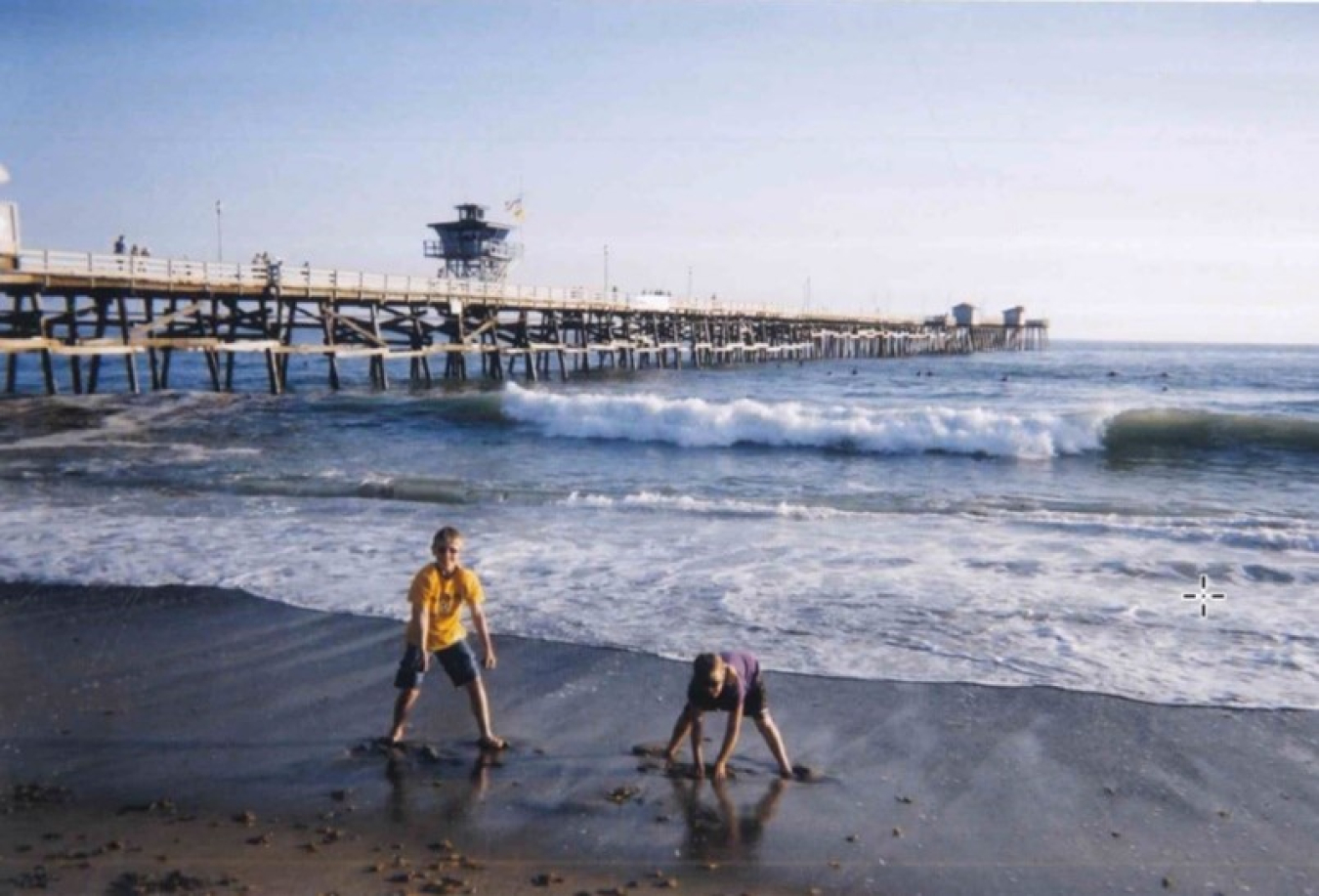
Michael (left) remembers loving the ocean the first time he saw it when visiting his aunt in California at age 11. Photo courtesy of Michael Kelly.
Do you have any advice for students who are interested in science or engineering?
Try out as many different things as you can and don't worry about specializing right away. I always really liked physics, but it wasn't until my senior year in high school, when my physics teacher said applied physics is basically mechanical engineering, that I realized where that would lead me. In college, don't just take classes, but try to take advantage of everything happening on campus. Find a good balance between classwork and work, developing skills and connections that will help your career. Take time away from work for fun. I tried to go for a hike in the Black Hills every week to get a break.
What do you see in America's clean energy future?
My dad worked in a coal mine in Wyoming driving one of the big trucks, so I grew up hearing about the working conditions not being the safest or most enjoyable. I’m hoping our future energy system provides safer jobs and cleaner air while always improving the environment. I see wave energy being a part of the solution to 100% clean energy, especially for island communities and cities along the coast!
Learn about the other graduate students selected for the 2021 ORISE fellowship program.
-
 Trent Dillon, a Ph.D. student at the University of Washington in Seattle, will explore location-specific options and opportunities for the Makah Tribe in Neah Bay, Washington, to harness wave energy.
Trent Dillon, a Ph.D. student at the University of Washington in Seattle, will explore location-specific options and opportunities for the Makah Tribe in Neah Bay, Washington, to harness wave energy. -
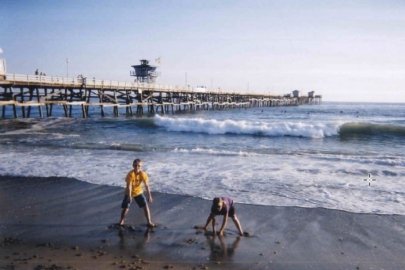 Michael Kelly, a Ph.D. student at the University of California, Berkeley, will assess how flexible-inflatable wave energy converters perform relative to their rigid counterparts when coupled with traditional, high-efficiency power take-off systems.
Michael Kelly, a Ph.D. student at the University of California, Berkeley, will assess how flexible-inflatable wave energy converters perform relative to their rigid counterparts when coupled with traditional, high-efficiency power take-off systems. -
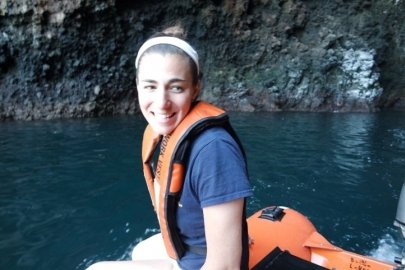 While working on master's and doctoral degrees at Oregon State University, Ali Trueworthy will develop a user-centered design methodology for high-performance wave energy devices during her fellowship.
While working on master's and doctoral degrees at Oregon State University, Ali Trueworthy will develop a user-centered design methodology for high-performance wave energy devices during her fellowship. -
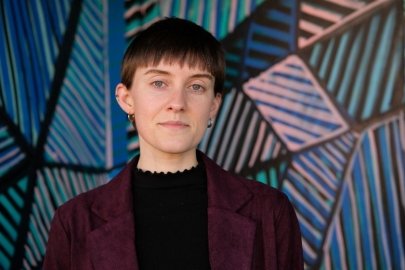 Katherine Van Ness will be leveraging computational modeling techniques to develop model simulations of laboratory-scale blade pitch control experiments.
Katherine Van Ness will be leveraging computational modeling techniques to develop model simulations of laboratory-scale blade pitch control experiments.

